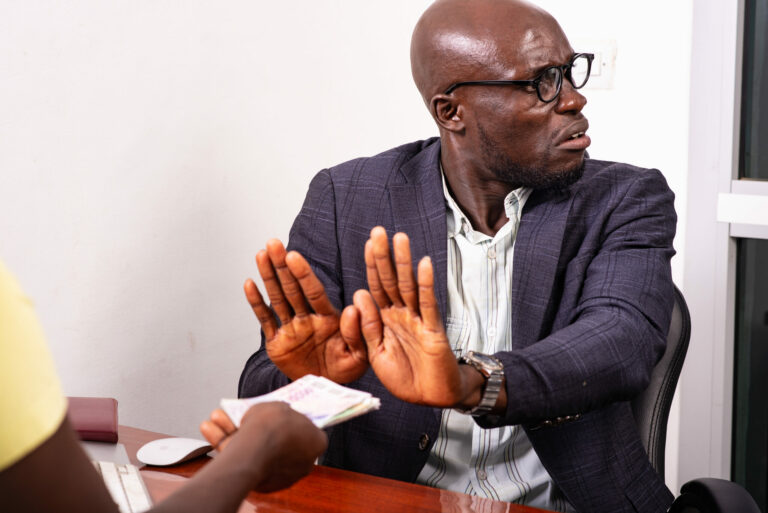News
70% of Nigerians refuse to pay bribes – NBS

The National Bureau of Statistics (NBS) says 70 per cent of Nigerians refused to pay bribes in 2023 on at least one occasion.
This is according to the NBS Corruption in Nigeria: Patterns and Trends Report released in Abuja on Thursday.
The report said the bribery refusal rate was found to be highest in the North-West at 76 per cent, although the refusal rate recorded in all the zones was above 60 per cent.
It said in 2023, fewer citizens reported suffering negative consequences after refusing bribe requests at 38 per cent compared with the 49 per cent recorded in 2019.
“This suggests that Nigerians feel increasingly empowered to confront corrupt officials without fear of repercussions.”
The report said in 2023, 21 per cent of all bribe refusers indicated that their main reason for refusing a bribe request was because they had other options of getting what they wanted.
It showed that 42 per cent of bribe -refusers did so because it was the right, moral thing to do while 23 per cent refused because they could not afford the requested gift or payment.
“This data shows that normative concerns as well as cost of living pressures play an important role in explaining why Nigerians refuse to pay bribes.”
The report revealed that corruption ranked fourth among the most significant problems affecting the country in 2023 at 10.9 per cent.
“Corruption came after the cost of living at 22.6 per cent, insecurity and unemployment at 19 per cent and 13 per cent, respectively.
“This suggests relatively stable and high levels of concerns about corruption over time and compared to other concerns such as education or housing.”
The report said Nigerians’ confidence in the government’s anti-corruption effort had been declining over time and across regions.
It said in 2019, more than half of all citizens thought that the government was effective in fighting corruption; however in 2023, the share declined to less than a third of all citizens
“The downward trend in the citizens’ confidence is observable across the entire country, with all six zones recording reductions of more than 10 percentage points between 2019 and 2023.”
The report said in 2023, more than half of all bribes paid to public officials were requested directly by those officials at 52 per cent, while indirect requests accounted for 23 per cent.
“This was followed by facilitate procedure at nine per cent, sign of appreciation at eight per cent and third party request at five per cent.”
It revealed that more than 95 per cent of all bribes paid in 2023 were paid in monetary form (cash or money transfer), a slightly larger share than what was recorded in 2019.
“Others are food and drink at eight per cent, animals at seven per cent exchange for other services at four per cent.”
The report said that roughly N721 billion was paid in cash bribes to public officials in Nigeria in 2023, corresponding to 0.35 per cent of the entire Gross Domestic Product (GDP) of Nigeria.
It said in 2023, out of all citizens who paid a bribe, 8.6 per cent reported their experience to an official institution capable of investigating or otherwise following up and acting on that report.
“This represents a marked increase in the bribery reporting rate since 2019 when it stood at 3.6 per cent.
“The increase is primarily driven by developments in the Northern zones, where the bribery reporting rate increased markedly from 4.7 per cent in 2019 to 13.4 per cent in 2023.
“In the Southern zones, the bribery reporting rate instead decreased moderately from 2.5 per cent in 2019 to 1.7 per cent in 2023.”
The report said more formal procedures were initiated due to reporting at 45 per cent and fewer cases had no follow-up at 17 per cent.
It was reported that this is the third round of the corruption survey with the first two rounds held in 2016 and 2019, respectively, across the 36 states and the FCT.
The corruption survey also known as the National Survey on Quality and Integrity of Public Services in Nigeria was implemented by NBS in partnership with United Nations Office on Drugs and Crime (UNODC).




 Davido's Net Worth & Lifestyle
Davido's Net Worth & Lifestyle 
